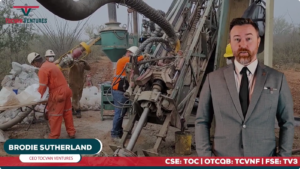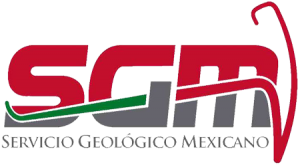Mexico is one of the Latin America’s richest sources for minerals and its mining industry has experienced a period of sustained growth. In 2010, Mexico exported $15.47 billion in minerals and growth is forecast to continue at least until 2015. Though the benefits have been enormous for Mexico’s economy, the rise has in some cases been a burden thanks to the attention mining has garnered from crime syndicates. Cartels have begun targeting the industry more in recent years, kidnapping workers for ransom, extorting up to $37,000 a month in security fees from businesses, and stealing resources to sell on the black market.
In recent cases, cartels have even been found to operate their own mines. For example, in May it was announced that the federal government had discovered several illegal coal mines in the northeastern state of Coahuila being run by criminal gangs.
The amounts earned by gangs from exploiting the mining sector are considerable. In 2010, steel producers reported that $240 million worth of steel was stolen while an estimated $3 million in gold was lost to theft between 2008 and 2012 in Mexico. The rising number of cases has forced some companies, like Canadas Goldcorp, to switch to aerial rather than ground transportation to avoid robberies. Others, like Torex Gold Resources, have ceased operations altogether in areas of Mexico that are deemed too risky.
Once stolen, gangs can either sell the resources on the black market or attempt to integrate it into the legitimate commodity trade through the use of corrupt companies. In an example of the latter, Ignacio Lopez, a money launderer for the Familia Michoacana was arrested in October 2010 for allegedly selling illegally extracted iron ore·in the southwestern state of Michoacan. Lopez is believed to have worked with three companies to export iron ore to China. Combined, the companies reportedly exported over a million tons of illegally obtained iron ore that year, amounting to some $42 million.
In addition to the profitability of mining, the industry has a particular allure for gangs as a way of laundering their money, as the Familia case indicates. Dirty cash can be converted into valuable minerals, which can then be moved and sold throughout the world.
Illegally obtained minerals are also harder to trace than other, illicit commodities — narcotics, trafficked humans — which are typically moved via land, sea and air. The Mexican and US governments invest billions of dollars, including $1.4 billion for the US Border Patrol·alone, to police trafficking routes. Tracking the entry of illegally obtained minerals into the market and the complex relationship between cartels and legal mineral companies requires a far different level of investigation, though, than the simple inspection of vehicles for smuggled goods at the US-Mexico border.
Adding to the complexity of the issue is the willing collaboration of some companies. In an interview with Reuters, Jesus del Campo, an official at the Ministry of Economy, explained that some foreign mining companies encourage illegal mining so they can operate in Mexico without having to obtain permits.
The illegal mining phenomenon is by no means isolated to Mexico, but rather represents a dynamic of criminals diversifying their portfolios that has been seen elsewhere in the region. Colombia is perhaps the most notorious country for illegal mining operations with left-wing guerrillas and drug traffickers known to extort from, and operate their own mines. This well established practice prompted Colombias former national police chief Oscar Naranjo to label illegal mining Colombias greatest challenge.·
Given the intense focus of Mexican and US authorities on drug interdiction, it is unlikely that organized crime will leave mining anytime soon, especially in light of the numerous financial benefits and difficulty in tracing these activities. As long as the demand and price for mineral resources stays high, mining will simply be too lucrative a prospect for gangs in Mexico to ignore.
























